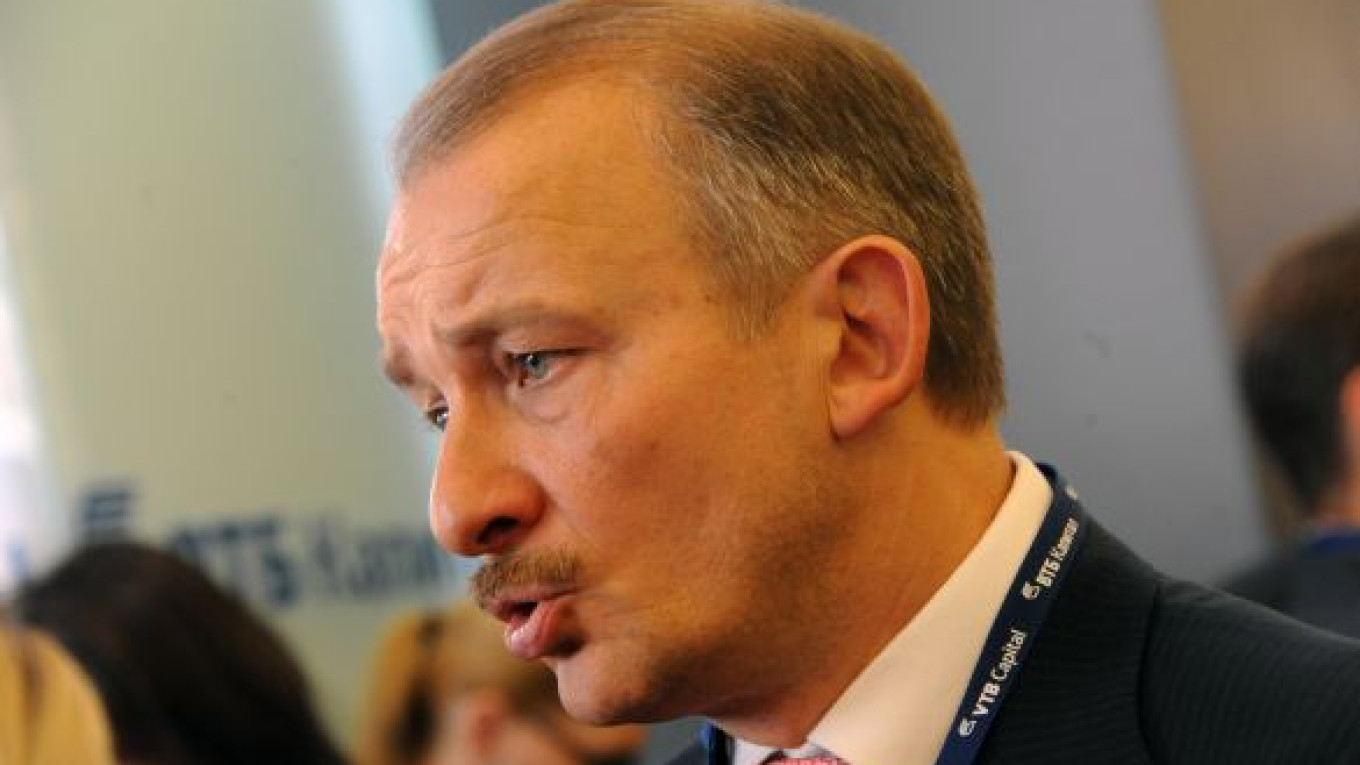Former Central Bank deputy chairman Sergei Aleksashenko has left Russia and will work at Georgetown University in Washington D.C., he said by e-mail Tuesday.
Aleksashenko, director for macroeconomic research at the Higher School of Economics, said the university had agreed to send him to Georgetown for the period until May 2014. He added that, at the moment, he had no plans to stay in the U.S. longer than that time.
“I want to come back to Russia when my stint [at Georgetown] is over in early May,” he said. “I will develop my further plans depending on the opportunities for self-realization that will exist.”
He told Kommersant earlier that he would not receive payment for the job.
Aleksashenko, an outspoken critic of the Kremlin's policies, said that his departure was not politically motivated and that he had not had any contact with law enforcement authorities. But Kirill Kabanov, head of the National Anti-Corruption Committee and member of the presidential council on human rights, told Kommersant that Aleksashenko's decision was motivated by the attention on him from law enforcement agencies because of his contacts with opposition leaders.
The economist told the Moscow Times that his decision to move to Washington was made for professional reasons.
“I could not find an interesting job in Russia when I had more spare time after leaving United Grain Company, United Aircraft Company and Aeroflot,” he said.
Aleksashenko left the boards of directors of United Aircraft Corporation and United Grain Company in 2011 and 2012, respectively, and earlier this year he failed to get re-elected to the board of directors of state carrier Aeroflot. However, he told Kommersant that “to some extent” his decision to work abroad was driven by the fact that the authorities had prevented his election to Aeroflot's board.
Aleksashenko was appointed first deputy chairman of the Central Bank in 1995. He resigned from the post three years later, soon after the default of 1998. He then worked in the private sector, including Vladimir Potanin's investment company Interros and Merrill Lynch's Russian branch.
He has been director for macroeconomic research at the Higher School of Economics since 2008 and a member of Moscow Carnegie Center's scientific council since 2009. Together with Lyudmila Alekseyeva, the head of Moscow Helsinki Group and Russia's veteran human rights activist, and former Constitutional Court judge Tamara Morshchakova, Aleksashenko was one of the founders of the Independent Council on Human Rights.
In May, another prominent economist, former New Economic School head Sergei Guriev, emigrated to France, citing pressure from authorities.
Contact the authors at o.sukhov@imedia.ru and bizreporter@imedia.ru
A Message from The Moscow Times:
Dear readers,
We are facing unprecedented challenges. Russia's Prosecutor General's Office has designated The Moscow Times as an "undesirable" organization, criminalizing our work and putting our staff at risk of prosecution. This follows our earlier unjust labeling as a "foreign agent."
These actions are direct attempts to silence independent journalism in Russia. The authorities claim our work "discredits the decisions of the Russian leadership." We see things differently: we strive to provide accurate, unbiased reporting on Russia.
We, the journalists of The Moscow Times, refuse to be silenced. But to continue our work, we need your help.
Your support, no matter how small, makes a world of difference. If you can, please support us monthly starting from just $2. It's quick to set up, and every contribution makes a significant impact.
By supporting The Moscow Times, you're defending open, independent journalism in the face of repression. Thank you for standing with us.
Remind me later.


